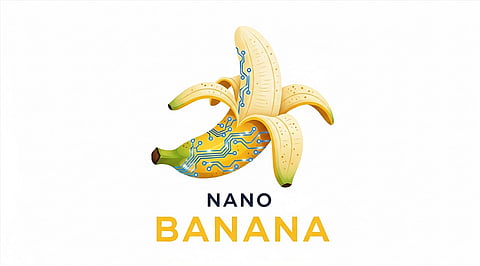

A new AI-driven trend called ‘Nano Banana’ has gone viral, allowing users to transform their photos into tiny, hyper-realistic 3D mini figurines. The feature is powered by Google’s Gemini 2.5 Flash Image model, and its unique appeal has quickly captured the attention of social media users worldwide.
Nano Banana is a computer vision image editing tool embedded in Google's Gemini app. It helps in transforming personal images into collectible-style action figures. With a photo uploaded and a basic text prompt, users can create 3D models that remarkably resemble miniature figurines.
These tiny, shiny models are complete with toy-like bases and wrapping. The outcome is strikingly realistic, combining elements of digital art and physical collectibles.
The process is simple and user-friendly: take a clear photo of yourself, a pet, or a celebrity. Then, write a creative prompt for the transformation. For example, a user may wish to transform into a superhero, a fantasy character, or even a cute monster.
The AI image editing tool generates accurate 3D models of figurines, available for instant download or sharing. To date, it has generated over 200 million creations, reflecting the growing popularity.
The Nano Banana trend has become incredibly successful for several reasons. First and foremost, it is one of the most creative and customizable platforms available. Users can transform themselves into action figures, place their images in famous paintings, and even imagine their likenesses in different historical time periods.
Secondly, anyone can use the Gemini app; it is relatively simple to use and offers an interface that most people can navigate without prior technical knowledge. Additionally, AI-generated imagery is easy to share and has significantly fueled social media chatter.
These images can be easily posted or reshared on platforms such as Instagram, X (formerly Twitter), and Reddit. Finally, the trend taps into popular culture and personal interests, allowing users to create figurines of pets, celebrities, or iconic fictional characters.
It also lets them bring to life notable characters from movies, TV shows, celebrities, or fictional worlds. This attracts a broad audience and consistently high engagement from users.
Nano Banana, like many other popular AI-driven products, has raised concerns about its ethical implications and privacy. To address this, Google introduced SynthID, an invisible watermark embedded in all AI-generated imagery, which helps identify such content responsibly.
User data is processed securely on Google’s servers and is never used for AI training unless the user provides explicit consent. The system complies with international privacy regulations, including GDPR, CCPA, and CPA, ensuring strong protection for users.
Also Read: ByteDance Challenges Google with Seedream 4.0: Can it Beat Nano Banana?
Getting started with Nano Banana is not that difficult. First, download the Gemini app or use Google AI Studio. Upload your image, give a creative prompt, and generate your very own 3D figure. The standard features are complimentary, but some advanced options may be available at an additional fee.
If you want to immortalize your pet, create a fantasy avatar, or simply experiment with AI, Nano Banana is a fun and creative way to engage with digital art.
The core features are available for free, allowing anyone to generate AI figurines. Certain premium aspects, such as high-resolution downloads, exclusive poses, or backgrounds, require in-app purchases or subscriptions.
AI-generated 3D images can be posted on Instagram, X, Reddit, or TikTok. Users tend to build themed collections, challenges, or mashups, driving engagement and viral moments on social media.
